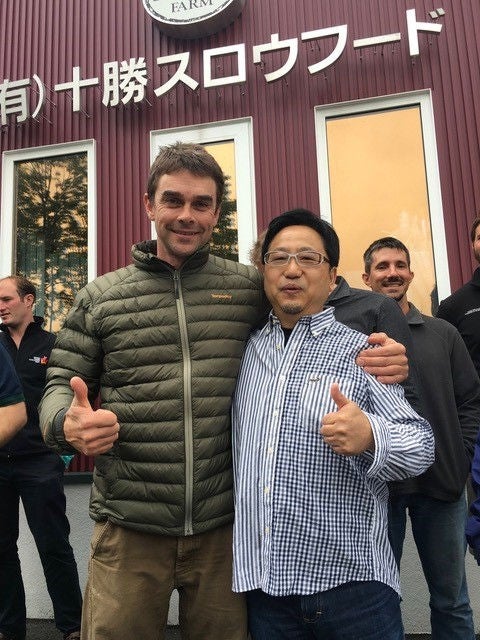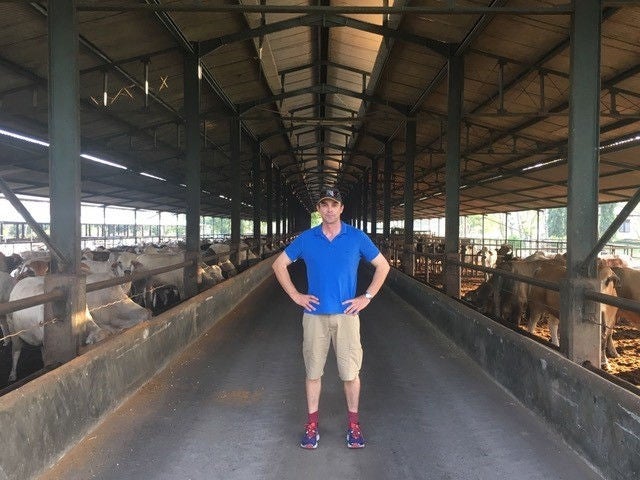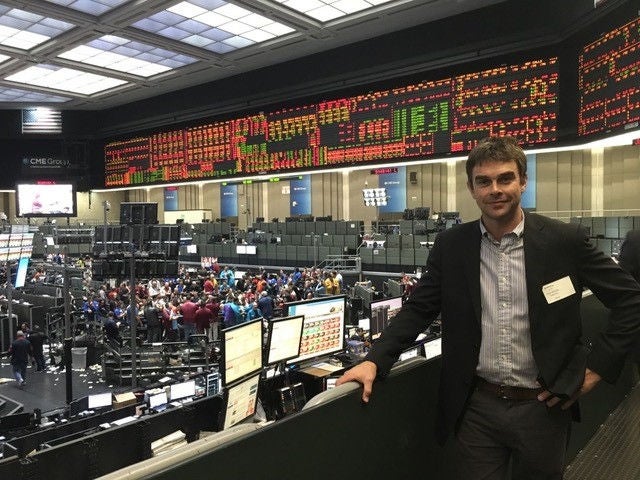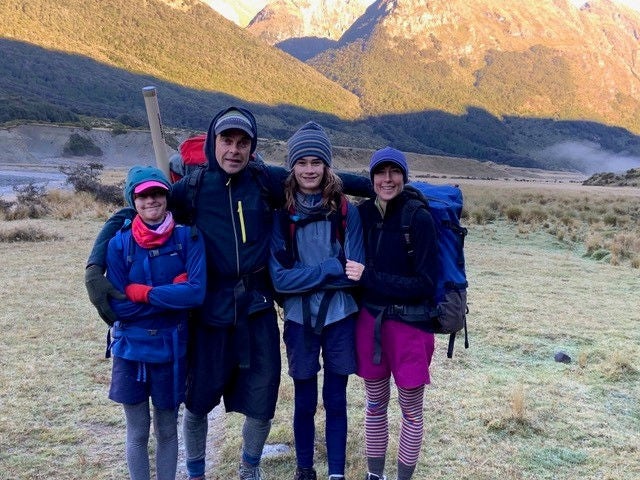Posted by on
07/05/2024
For some beef producers, a fully integrated supply chain may be considered the holy grail for mitigating risk and ensuring product transparency, yet as New England grazier John Finlayson discovered during his Nuffield Australia journey, it’s a complex reality.
A 2016 Nuffield Scholar, sponsored by Rabobank, John’s research topic was “Keep lean or beef up: the risks and rewards of a vertically integrated beef enterprise”, with the experience affording him a unique insight into production models globally.
“During my 20 years managing our cattle operation I’ve seen enormous swings in the profitability of the different sectors, particularly producers versus processors, sometimes to the point of antagonism,” John reflects. “As a largely export market dependent on supply and demand mechanisms, heavily influenced by consumers, and more so by the weather, Australian producers face significant and unique challenges.”
As he discovered during his travels, the volatility local beef businesses face, be it climatic or market-driven, is potentially globally unprecedented, and researching how Australian red meat producers can work more effectively with processors and retailers to promote a quality product and mitigate this risk formed the basis of his research.
Visiting farms throughout Brazil, Japan, New Zealand, Uruguay, and the USA, John researched successful models of vertical integration in the beef industry, ranging from owning the entire supply chain to working with trusted partners, as well as co-operatives and contracted supply chain partners.
“As communities place greater emphasis on quality, welfare, and transparency, understanding the risks and rewards of the beef value chain is crucial, and one of my main surprise learnings was that the concept of retailing our own beef through a fully integrated supply chain was a considerable risk.”
“It was an endeavour that required a new set of skills and really was an entirely different business.”
From paddock to plate a big bite to swallow
John, who returned home to the family farm, “Pointsfield”, near Lyndhurst north of Armidale, in 2004 after a successful corporate career in the USA, has maintained a healthy curiosity, backed by a strong business nous, regarding how to continue strengthening his 2,200 hectare sheep and cattle grazing enterprise.

John visiting beef operations in Japan as part of his Nuffield Scholarship
“One of the triggers that sparked my research topic was whether we could retail our own beef, and ultimately the answer is that without a large, affluent consumer market close by, it’s difficult,” he explains.
“The one thing that made me re-think the whole vertical integration direct to customer model, was questioning exactly who is your customer, and how many of them do you need.”
“I guess I was a bit shocked by the scale of the business required, there are so many profit centres in a body of beef that I didn’t realise.”
“The Australian beef industry is a sum of all parts – it isn’t just beef, it’s everything from cosmetics to medicine that makes the industry what it is – you meet a lot of people now who have valves in their hearts from Angus cattle, there are so many products that can be derived from one carcass.”
The upskilling required to market branded beef was also complex.
“To make it work, you need a high level of processing and marketing expertise – you go from being a producer to being a meat marketer and processor, and that is a different discipline carrying risk in itself.”
What John identified that his enterprise could do consistently, and well, was grass-fed beef.
“I started to look at other businesses, and locally there are a lot of integrated Wagyu supply chains, so we investigated offering a high management backgrounding service to customers, where we would effectively take their Wagyu cattle, and put them through a backgrounding phase where they knew their cattle were getting good, consistent growth rates.”
And that’s exactly what he did, partnering with an integrated Wagyu beef breeder to background high-value cattle, offering a premium management and animal husbandry service so that animals enter the feedlot consistently with reliable growth rates.
It’s a partnership that continues to grow and evolve – with the company now looking to John to background cattle destined for the EU market.
“We work better together, our partner is not large, it’s a company that takes product right through to export and our values are well aligned – for a successful synergy you need a relationship based on respect, which you may not always get with the bigger suppliers.”
Opportunities beyond Nuffield
One of the most valuable aspects of Nuffield, John believes, is the opportunities that present as a result.
In John’s case, it was an out-of-the-blue proposal from a peer who reviewed his Nuffield paper, and then was engaged to independently research the grass-fed supply chain into the US market.

At an Indonesian feedlot during his travels
“I spent 12 months of extensive study for a business on exactly what I’d researched as part of my topic, and this time I had the opportunity to go to the next level and start talking to the market – processors, exporters, and importers – as to how the mechanics of a grass-fed supply chain may work.”
In the end, his findings were consistent with his Nuffield research – there was too much risk involved for his client that would require them to move into the business of trading boxed beef to supply enough product that customers in the US required.
“It was an exceptional learning opportunity, particularly around the processing sector, and I would never have had that opportunity had it not been for Nuffield.”
This private research project, together with Nuffield, also gave John a taste of life beyond the farm gate, and realising that it was possible for the ‘show to go on’ without him, opened up a world of opportunity.
In 2022 John, together with wife Narelle Jarry, and children Darcie and Rory, moved to New Zealand to spend 12 months living in a different country.
“I learned from Nuffield that I could physically leave the farm for nine weeks to study, and then through the supply chain opportunity that I could leave my business for 12 months.”
“It’s not for everyone, but those learnings have been very important as we grow and look forward, and we’ve set up a management structure without me being there for the day-to-day.”
“Nuffield was step one in enabling that to even be a possibility.”
Good people, the correct people, and a clear explanation of roles have been the key to the Finlayson management structure success.
John’s enterprise shift into what is today primarily a professional backgrounding model has also provided flexibility.
“This model really de-risks our business, we can raise our stocking rate when we need to – if we have lots of grass we can bring those partner cattle in without borrowing a million bucks and exposing ourselves to market volatility.”

A trip to the Chicago Futures Market thanks to his Nuffield opportunity
John has retained his core herd, however, he has reduced core breeder numbers, and since Nuffield has moved to trading sheep rather than breeding them.
“Simply we were trying to do too many things, we value benchmarking, and our benchmarking group is great for indicating that you can’t do too many things averagely, rather do a few things well.”
An opportunity to embrace
With the benefit of a global telecommunications career underpinning a diversity of expertise – and a quest for business progression – John says a Nuffield scholarship had long piqued his interest.
“I often used to read a few of their reports, and was always impressed by how much the scholars were learning and the breadth of their knowledge, and it really struck me during my learning just how complicated agricultural businesses are."
“My livestock component is just one very small aspect of agriculture, yet whether it’s grains, horticulture or dairy – we all face very similar challenges, particularly if you look at regulation and social license pressures."
Spending time with EU producers and policymakers was, he said, fascinating – and since his study tour the social licensing issues placed on New Zealand has been reflective of a modern global movement.
“These social license pressures will continue, and when you see the derogation targets in Europe, and how much regulation they have you realise how little regulation we have in our market in comparison.”
It prompted John to gain an understanding of tools such as carbon measurement, and he completed the Rabobank Carbon Training Course, as well as a footprint project.
“We’re firming up our knowledge in this area to be on the front foot with carbon sequestration, however we haven’t yet moved on this yet, as I don’t view early moving is an advantage, as there’s no stability in the market, particularly no regulatory stability.”

Nuffield gave John the confidence to spend a year off-farm with his family in New Zealand.
Grass measurement and management was another key learning from John’s travels, borrowing from the efficiency of New Zealand and Ireland’s dairy sector.
“I’ve come home and intensified our grazing management business which underpins how we market ourselves as really effective managers of producing high-quality grass that we then sell to beef backgrounding partners to put into their animals.”
John recommended anyone with an interest in global agriculture, and engaged in contributing to a vibrant industry, to apply for this unique and highly regarded Nuffield opportunity.
He also thanked Rabobank for sponsoring his scholarship, and for opening the door to its valuable global network.
“Rabobank was fantastic in the fact that it has so many global farmers,” he explains. “I had the opportunity to stay with a feedlotter in Brazil who had been in Australia at the Rabobank Farm2Fork Summit, and in Europe I was able to tap into a number of local farmers, you just can’t put a value on these relationships.”
The Nuffield Scholarship is now open to Australian citizens or permanent residents directly involved in food and fibre production typically aged between 28 and 45.
